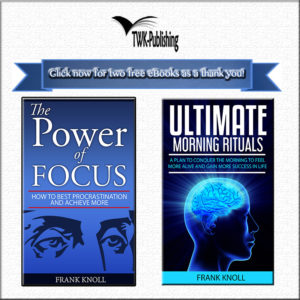
The Power of Focus
Here is an introduction of our new book, “The Power of Focus.”
Introduction:
You’re busy. I’m busy. Everyone’s busy. Yet despite this bustle, we regularly don’t feel especially productive from day to day. Entire weeks can flash by in a blur of meaningless emails, conferences, and admin tasks while the “massive stuff” is going untended. As the nineteenth-century philosopher Henry David Thoreau wrote, “It isn’t enough to be busy. So are the ants. The question is: What are we busy about?”
If we want to take back control of our workday schedules and priorities, the simplest way to do it is by way of relentlessly wondering how we’re spending our time. However, what questions ought we to ask? I reached out to a handful of normal 99U individuals and the 99U convention audio system to get their insights on daily energy and assignment control. Here’s what they said:
From Leo Babauta of Zen behavior:
What are you doing in this moment?
The simple act of becoming more aware of what you’re interested in helps you to recognize what you need it to be – growing something extraordinary. Too often, we get distracted or get caught in unimportant tasks – coming back to the moment will often assist.
From Tony Schwartz of the strength project:
Are you scheduling time each day to have awareness without interruption?
Set aside at the least one period throughout the day – no more than 90 minutes at a time (and as close to that as feasible) – to have awareness without interruption. Time, in other words, to do something essential, however, no longer urgent – to put something in writing, replicate, strategize, consider, paint etc., on a long-term project.
The key here is control of attention. We’re so distracted, and we’re feeding that feeling on every occasion we switch between responsibilities. We need to (re)educate our attention. Focused interest can serve obligations – that’s the left hemisphere at work, doing rational, deductive, logical, step-by using-step questioning.
The other sort of attention, which serves creativity, is where the right hemisphere is dominant. That calls for deeply quieting the thoughts. It was Betty Edwards (drawing on the proper aspect of the mind) who located that one powerful manner to prompt a shift from left to the right hemisphere is to copy an upside-down line drawing. Or to genuinely count to a certain number.
But there are lots of approaches to activate the shift: take a walk in nature, go for a run, and concentrate on a classical tune… even take a bath. It’s repetition that causes the shift. The more we teach any muscle – which includes the right hemisphere – the more potent and more lively it becomes.
From Mark McGuinness of Lateral motion:
What’s the one big thing you want to do these days?
The large threat for hyper-connected creative experts is that incoming needs and virtual distractions get in the way of real productivity – i.e. making inroads to your massive, frightening, tough, and (ultimately) worthwhile creatively demanding situations.
If you do ONE massive project nowadays – one draft layout, one bankruptcy, one photo shoot, and one in depth rehearsal – it feels like an effective day. (Two or greater is for superheroes.) But in case you don’t nail that one component, it doesn’t matter how many little jobs you get done, you feel in your heart that it was a wasted day.
Asking yourself this question, first factor in what facilitates your focus, and prioritize. After that, the only things that can get in your way are emergencies and excuses.
From Chris Guillebeau of The Artwork of Non-Conformity:
Why do you do that every single day?
It’s very difficult to be productive in the long term while trying to do what matters to you. You’ll have to “suck it up” now and again to complete a sure undertaking, but for the “big rocks” it’s a lot easier to construct your work around things you’re enthusiastic about.
From Scott Belsky of Behance:
Is what I’m about to do (or say) moving the ball ahead?
Many times, in creative tasks, we act out of impulse instead of reason. Vibrant gadgets and other fleeting fascinations will be predisposed to drain our mental assets. Before than you allocate time to any mission, question your intended final results. Look at your contributions in conferences. While you talk, are you “content-making” or simply “commentating”? Be intentional. Everything you do or say should pass the ball ahead closer to your goal. If it doesn’t, it is susceptible to wasting precious power and gets you off track.
From Cal Newport of look at Hacks:
What’s your education regime for increasing your capability for awareness of something without distraction?
This “tough attention” is at the center of completing first-rate work in a compact amount of time – be it an e-book or anything else. Tough cognizance is likewise a muscle that requires training to increase. (While helping students with this ability, for example, I’ve had them start with 20-minute blocks of undistracted work, after which add 10 minutes every week.)
To ignore this muscle, and continue to work with your email open and Facebook refreshing, thinking up excuse after excuse as to why this connection is “crucial” to your process, makes you like the wannabe athlete who refuses to hit the weight room. You’re no longer a contender.
For more information here is our book:
Click image to learn how to become a best selling amazon author…




